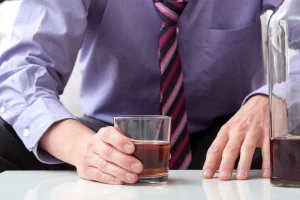
They are afraid of the world, they are terrified of the limelight, they are avoidant, they are socially shy, they are pseudo humble, fake modesty. People recovering from co-occurring AUD and NPD must find healthy ways to replace maladaptive behaviors and thought patterns. Narcissism involves manipulation, taking advantage of the kindness of others, and selfish behaviors. The care team helps clients overcome these symptoms and develop a healthy support system. However, treatments like psychotherapy, group support, and self-care strategies can help people with either condition feel much better.
MENTAL HEALTH
- With clear communication, taking care of personal safety, and having a strong social support system, it is possible to leave an alcoholic narcissist.
- Alcohol use disorder (AUD) is prevalent, impacting millions worldwide, and often coexists with other psychological conditions.
- The purpose of these groups is to provide a safe and supportive environment where you can share your struggles and receive encouragement and guidance from others.
- It is important to note that not all individuals struggling with alcoholism exhibit narcissistic traits.
Whether you choose to work on the relationship or decide to leave, these steps will also guide you on how to leave an alcoholic narcissist. In some cases, medication-assisted treatment may be prescribed as part of the overall treatment plan for alcoholic narcissism 4. Taking responsibility for their actions can be a significant challenge for those with alcoholic narcissism 2. They often deflect blame onto others or make excuses for their behavior, refusing to acknowledge their faults or mistakes. A 2019 study found a link between vulnerable narcissism, shame, and an increased likelihood of problem drinking and gambling. Vulnerable narcissism features traits like low self-esteem, helplessness, and rejection sensitivity.
- This behavior is a defense mechanism that allows enablers to avoid confronting the reality of the situation and the narcissist’s behavior.
- The path what happens when a narcissist drinks alcohol forward involves fully understanding the risk factors, underlying issues, and side effects of co-occurring NPD and AUD.
- Allowing their alcoholism to spiral out of control, whilst they milk the supposed benefits.
- Many people use the terms “alcohol use disorder” and “alcohol misuse” interchangeably, but they refer to two different things.
Alcoholism And Narcissistic Personality Disorder
Diagnosis and treatment for individuals with both AUD and NPD can be challenging due to overlapping symptoms. At NuView, we integrate expertise in behavioral therapy, mental health, and substance use treatment to create a customized recovery plan tailored to your unique needs. Having a narcissistic spouse, even if they are sober, is difficult to manage. While alcoholism can often be diagnosed and treated, with narcissism, it is more difficult to diagnose or treat.
What Happens When an Alcoholic Narcissist Refuses Help?
- Additionally, if alcohol abuse is normalized or present within the family, it can further contribute to the interplay between narcissism and alcoholism.
- Therapists, support groups, books, hotlines, and legal counsel can offer guidance and assistance in effectively managing interactions with a drunk narcissist.
- When AUD and NPD occur together, it can increase a person’s hostility and aggression.
- For example, busy corporate executives, race car drivers, professional gamblers, they all, many of them, consume substances.
- Alcohol detox helps clients learn essential social skills and other tools to manage the symptoms of NPD.
- And sadly, addiction recovery can be particularly hard for them.
They may refuse to acknowledge the impact of their actions on others, instead choosing to blame others for their problems. This can make it difficult to have honest and open communication, as they may become defensive or aggressive when confronted with their behavior. Knowing the signs and symptoms of each condition can help you identify which one is at play. When you’re caught in the crossfire of someone with these symptoms, recognize that you aren’t responsible for their behavior—as much as they might try to pin it on you or someone else. At Ria, we offer weekly meetings with certified counselors to help members what happens when a narcissist drinks alcohol stay on track and build skills for long-term change. And the high and the buzz of the drink compensate for any frustration, any depression, stress, anxiety, deficiency, inferiority.
One of the ways alcohol does this is by having an effect on the part of our brain, on the center of our brain, that perceives symmetry. But after a few drinks, her empathy towards her husband will vanish, and she will act on her wish. She will have sex with that gorgeous stranger, because she’s disinhibited. Not, not as the misinformation online goes, it does not eliminate empathy. One cannot say with any certainty that alcohol is the outcome of the changes in the brain. Read more about living with a person who has AUD and managing a relationship with someone who has NPD.


Being close with an alcoholic narcissist can be emotionally draining, and it’s crucial to take care of yourself. After all, this behavior seems to fit the bill for both conditions. When it comes to alcohol addiction and narcissism, there are some uncanny similarities that can leave loved ones confused, frustrated, and emotionally drained. And covert narcissistsget that drunk in order to feel better about themselves and about their lives, legitimize their promiscuity in cheating, and trash themselves in the bout of self-destruction.
Struggling With Addiction or Mental health Issues?

Criticism, feelings of inferiority, or challenges to their sense of superiority can trigger defensive or withdrawn reactions. You may also find it helpful to talk to a therapist about your experiences. People with narcissistic personality disorder put a lot of time and effort into crafting the situations and keeping up appearances in order to fill their emptiness. Nevertheless, the attention and admiration that they require increases over time, just like how an addict needs to increase their dose. When they feel as though they are not receiving the adequate amount of attention and admiration, they experience anxiety and, ultimately, depression that can lead to self-medication and addiction.
- This is an extraordinarily frightening concept for the aging narcissist.
- The covert narcissist has enormous self-loathing and self-patriot.
- Alcohol misuse is often a form of self-medication for individuals with co-occurring mental health issues.
- Having a supportive network of friends and family who understand your situation can provide emotional support and practical advice.

Many individuals who develop alcoholic narcissism have experienced childhood trauma or emotional wounds 2. Adverse experiences such as neglect, abuse, or significant loss can shape their self-perception and contribute to the development of narcissistic tendencies. Alcohol may serve as a means of self-medication to numb the pain and escape from unresolved emotional issues. Have you ever come alcohol rehab across someone who is not only self-absorbed but also struggles with alcohol abuse? This intriguing combination is known as a narcissistic alcoholic, where the traits of narcissistic personality disorder (NPD) intersect with alcoholism.
